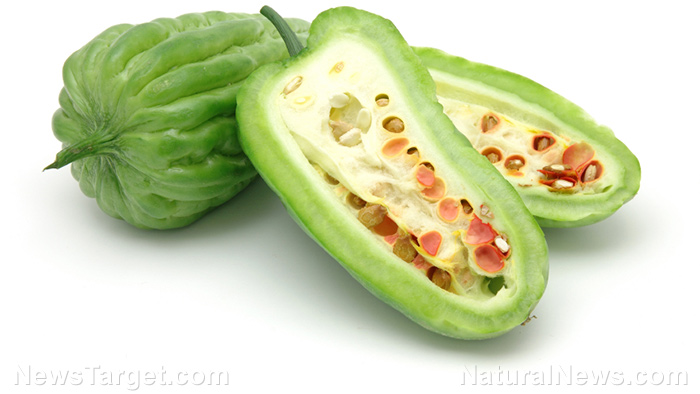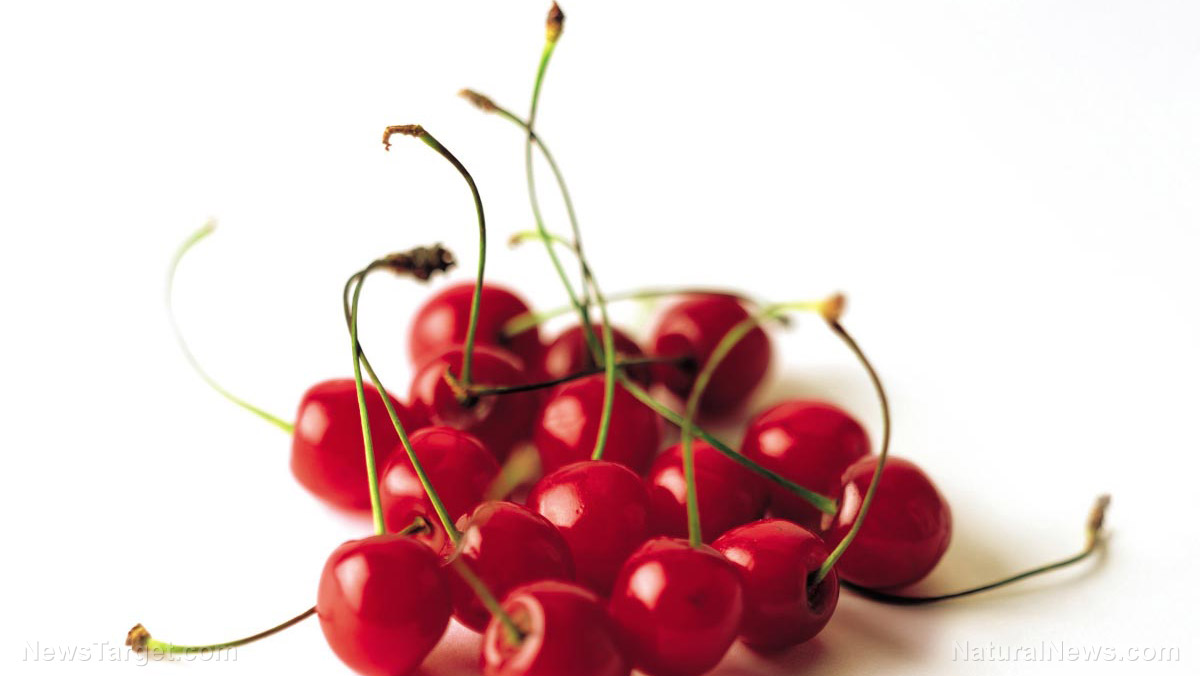Eating bitter melon is a great way to keep diabetes at bay
11/18/2020 / By Evangelyn Rodriguez

Momordica charantia, commonly known as bitter melon or bitter gourd, is a fruit-bearing tropical vine that belongs to the Cucurbitaceae (gourd) family. It is closely related to cucurbits typically found in the human diet, such as pumpkins, melons, squash and zucchinis.
The fruit of this medicinal plant is popular as a disease-fighting superfood. In fact, extracts from different parts of the bitter melon, including its seeds, have been made into supplements that aid in the treatment of serious conditions, most notably obesity and diabetes.
According to researchers from Australia and Bangladesh, supplementation with bitter melon can prevent body weight gain in rats by increasing the oxidation (burning) of fat. Bitter melon fruit extracts have also shown strong antioxidant and blood sugar-lowering activities in cell culture and animal studies.
To further investigate the anti-diabetic properties of bitter melon, researchers from Congo-Brazzaville and France analyzed the phytochemical composition of the leafy stem of bitter melon. They also used rats treated with streptozotocin, a naturally occurring compound that can induce diabetes, to determine how bitter melon extracts can influence blood sugar.
The researchers reported their findings in an article published in the Journal of Medicinal Plants Research.
Compound in bitter melon found to possess anti-diabetic properties
According to the researchers, the aerial parts of the bitter melon plant are often used in traditional Congolese medicine. It is used as a laxative and as an antimalarial, anthelmintic and antidiabetic medicine. However, despite its long history of use as a natural treatment for diabetes, no antidiabetic and phytochemical studies have been done on the bitter melon species that grows in Congo.
To address this, the researchers decided to harvest locally grown bitter melon and prepare extracts from its leafy stem. They then used gas chromatography and mass spectrometry to analyze the phytochemical composition of the extracts.
For their in vivo study, the researchers used rats with streptozotocin-induced diabetes. Streptozotocin is a naturally occurring compound often used as an antineoplastic (anti-tumor) agent. It is, however, known to be toxic to pancreatic beta-cells, which are the cells responsible for producing insulin. The damage caused by streptozotocin is enough to trigger hypoinsulinemia (low insulin) and hyperglycemia (high blood glucose).
Phytochemical analysis of the bitter melon ethanolic extracts revealed the presence of various active components, such as flavonoids, alkaloids and saponins. It also led to the identification of a molecule called charantin. Charantin is known as a natural antidiabetic agent. Because of its structural similarity to insulin, charantin is able to decrease insulin levels and promote insulin sensitivity in Type 2 diabetic mice. The compound has also been found to protect pancreatic beta-cells from the toxic effects of streptozotocin.
Meanwhile, the researchers found that treatment with the bitter melon extracts reduced glycemia by 51.62 percent in the diabetic rats. They observed this beneficial effect three hours after treatment. The researchers attributed bitter melons antidiabetic activity to the presence of various phytochemicals, including charantin.
Based on these findings, the researchers concluded that bitter melon is a potent natural medicine for diabetes.
Other health benefits of bitter melon
Bitter melon is cultivated around the world for its edible fruit, which, despite its notoriously bitter taste, is a staple in various cuisines. Many people eat bitter melon or take bitter melon supplements because of the plant’s many health benefits, all of which have been reported by countless studies.
Here are five science-backed benefits of this medicinal, edible plant: (h/t to Healthline.com)
- It contains a variety of important nutrients, such as vitamins A and C, folate, iron, potassium, zinc and dietary fiber.
- It helps with blood sugar control.
- It can prevent the growth and spread of cancer cells, and even promote cancer cell death.
- It helps lower bad cholesterol levels.
- It promotes fat burning and weight loss.
Bitter melon is a disease-fighting superfood that not only helps treat diabetes, but also helps fight obesity. To enjoy all of its health benefits, add bitter melon to your regular diet or take high-quality bitter melon supplements. You can learn more about this plant at PlantMedicine.news.
Sources include:
Submit a correction >>
Tagged Under:
alternative medicine, anti-diabetes, bitter melon, charantin, diabetes cure, diabetes science, food cures, food is medicine, functional food, natural cures, natural medicine, phytonutrients, remedies, research
This article may contain statements that reflect the opinion of the author
RECENT NEWS & ARTICLES
COPYRIGHT © 2017 DIABETES SCIENCE NEWS





















